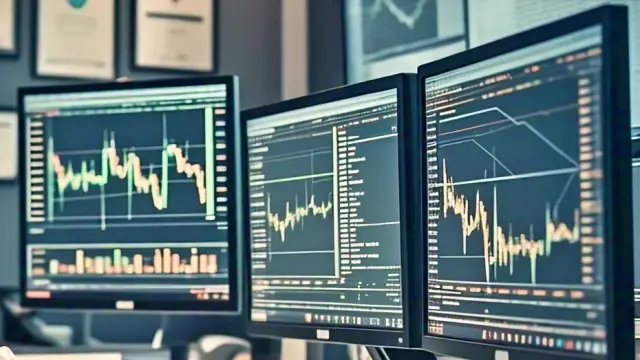Trading isn’t just about charts, indicators, or strategies. It’s about you. Your emotions, discipline, and ability to manage risk determine whether you succeed or fail. Yet, 99% of Forex systems ignore this critical truth. They sell hope, not results.
If you’re serious about trading, this article will change your game. I’ll reveal the two biggest obstacles traders face and how to overcome them. Plus, I’ll share practical tips on money management and trading psychology that most systems won’t teach you. Let’s dive in!
The Two Enemies of Trading Success
What’s stopping you from becoming a profitable trader? It’s not your strategy or lack of knowledge. It’s fear and greed. These emotions are responsible for 99% of trading failures.
- Fear makes you hesitate, miss opportunities, or exit trades too early.
- Greed pushes you to overtrade, ignore stop-losses, or chase unrealistic profits.
You can’t eliminate these emotions, but you can control them. The key is to create rules and stick to them.
Why Most Traders Fail
Did you know that 95% of leveraged traders lose money? Here’s why:
- They don’t follow their trading system.
- They let fear and greed dictate their decisions.
- They lack proper money management.
The good news? You don’t have to be part of that 95%. By mastering trading psychology and money management, you can tilt the odds in your favor.
The Big Secret: Play the Odds
Trading is a game of probabilities. Even the best systems don’t win every time. But over time, they produce profits—if you follow the rules.
Let me explain with a simple example:
The Coin Toss Game
Imagine flipping a coin 100 times.
- Heads: You win $2.
- Tails: You lose $1.
Statistically, you’ll get 50 heads and 50 tails. That’s a $50 profit. But what if you skip some flips?
- You skip 10 flips, and 5 of them are heads.
- Now, you’ve missed $10 in profits.
- The remaining 90 flips give you $45 in profit.
- Your total profit drops to $35.
By skipping trades, you’ve reduced your profit by 30%.
How This Applies to Trading
Your trading system works the same way. It’s designed to win over time, but only if you take every trade that meets the conditions. Skipping trades messes with the odds and reduces your profits.
How to Overcome Fear and Greed
Here’s how to protect yourself from your own emotions:
1. Follow Your System Religiously
- Enter trades only when your system signals.
- Exit trades only when your system says so.
- No hunches, no exceptions.
2. Use Stop-Losses and Take-Profit Levels
- Define your risk before entering a trade.
- Stick to your stop-loss and take-profit levels.
3. Risk Only What You Can Afford to Lose
- Never risk more than 1-2% of your account on a single trade.
- Adjust your position size based on your account balance.
4. Keep a Trading Journal
- Record every trade, including the ones you skip.
- Analyze your performance regularly.
5. Be Patient
- Wait for the right setups.
- Don’t chase trades or force opportunities.
Money Management: The Key to Survival
Money management is just as important as your trading strategy. Here’s how to do it right:
1. Calculate Your Risk Per Trade
- Decide how much you’re willing to lose on each trade.
- For example, if your account is $10,000, risk no more than $100 per trade (1%).
2. Determine Your Position Size
- Use this formula:
Position Size = (Account Balance × Risk Percentage) ÷ Stop-Loss in Pips - Example: If your stop-loss is 40 pips, your position size should be 0.25 lots.
3. Stick to Your Plan
- Don’t increase your risk after a losing streak.
- Don’t get greedy after a winning streak.
The Power of Consistency
Trading success isn’t about making huge profits overnight. It’s about consistent, disciplined execution.
Here’s what I learned from my own trading journey:
- In my first month, I made 92 pips by skipping trades.
- When I analyzed my journal, I realized I missed 263 pips by not taking every trade.
- The next month, I took every trade and made 515 pips—a 560% improvement.
The lesson? Trust your system and take every trade that meets the conditions.
Final Thoughts: Protect Yourself from Yourself
Trading is a mental game. The market doesn’t care about your emotions or goals. Your job is to stay disciplined, manage risk, and follow your system.
Remember:
- Fear and greed are your biggest enemies.
- Money management is your safety net.
- Consistency is the path to success.
If you can master these principles, you’ll be miles ahead of 95% of traders.
Ready to transform your trading? Start today by applying these lessons. Your future self will thank you!

